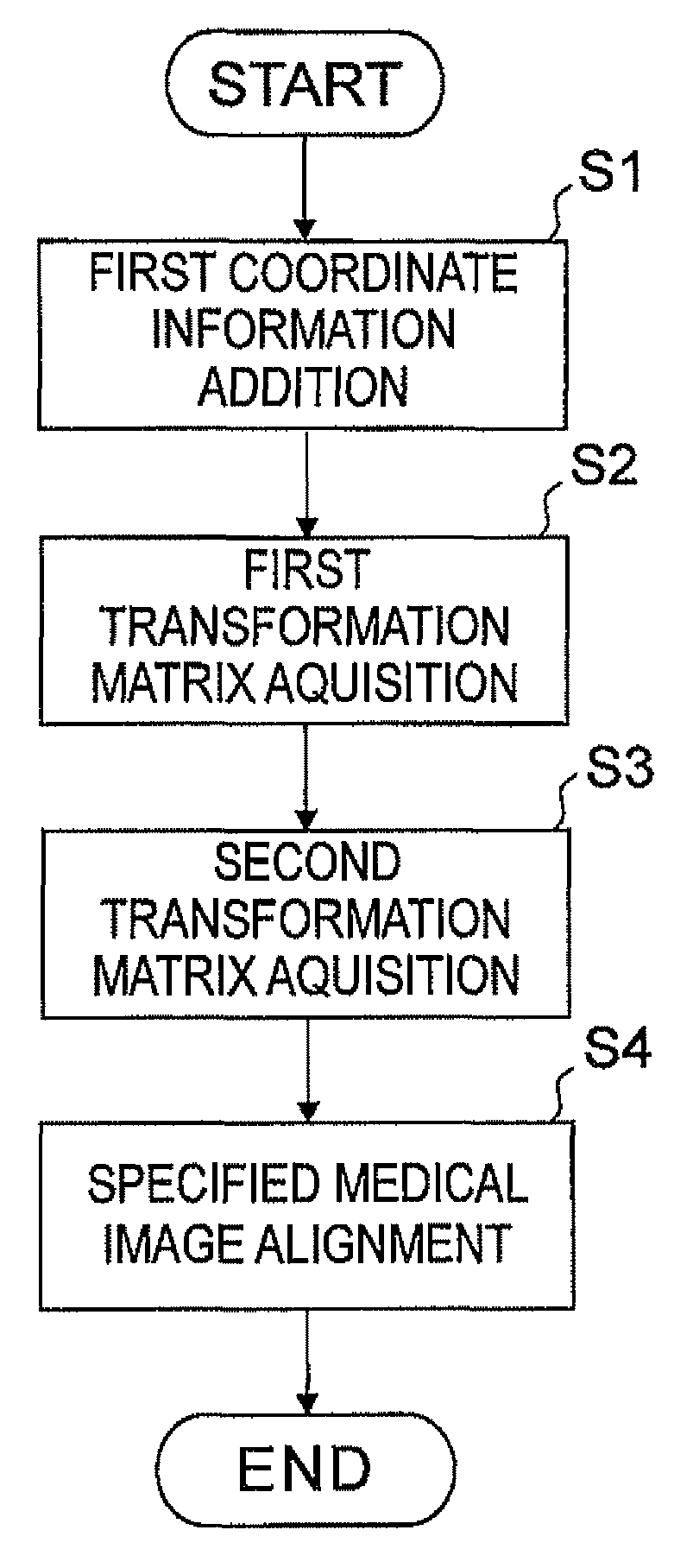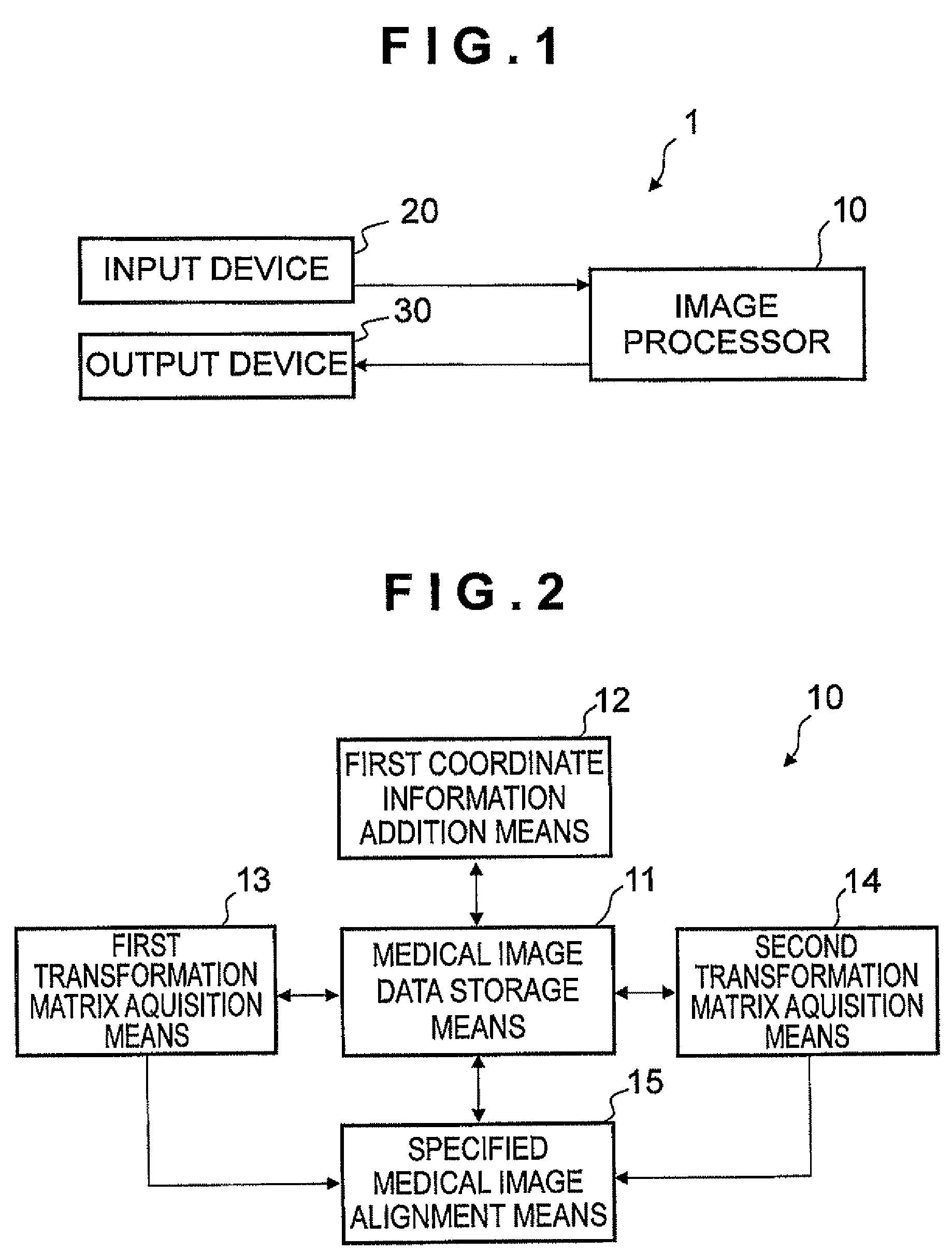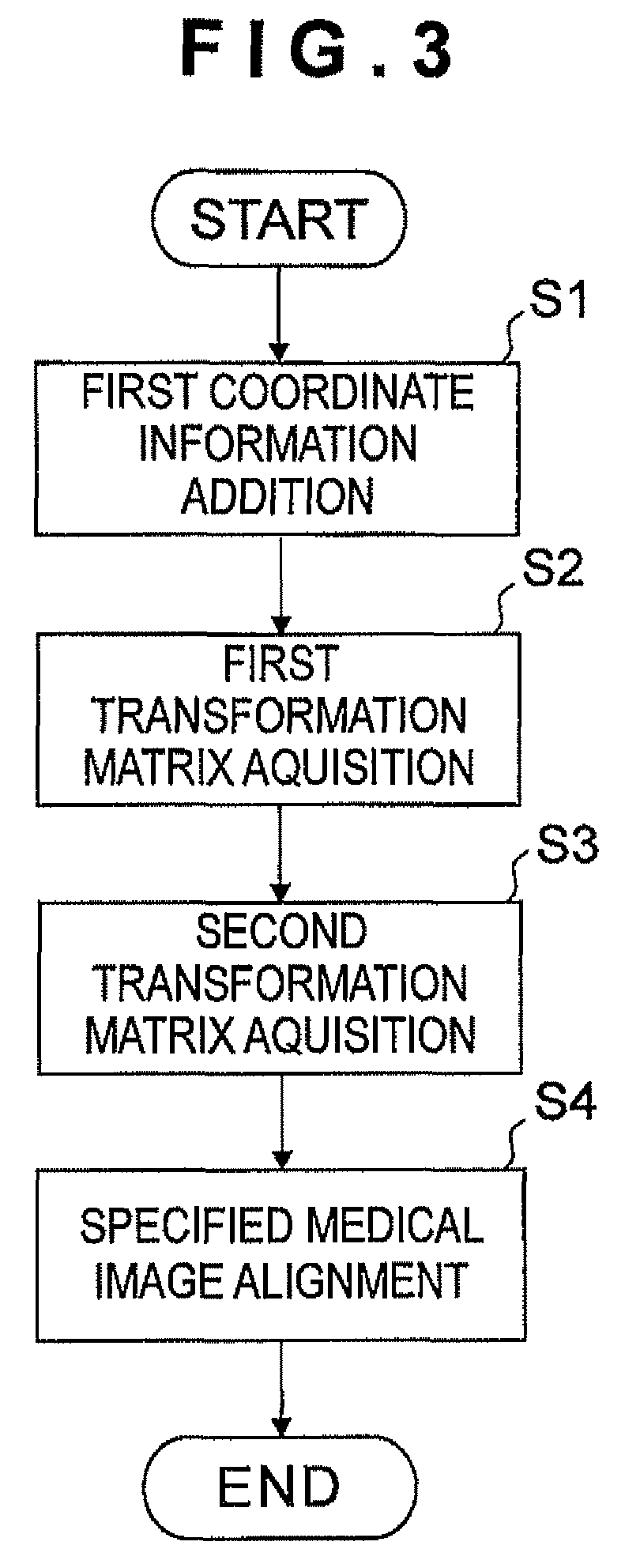Medical image data alignment apparatus, method and program
a technology for aligning apparatus and medical images, applied in image enhancement, tomography, instruments, etc., can solve the problems of low resolution of spect image, long time to perform alignment with sufficient accuracy and reproducibility, and increase the number of false positives of ct image alone, etc., to achieve high correlation in image signal values, high accuracy, and sufficient reproducibility
- Summary
- Abstract
- Description
- Claims
- Application Information
AI Technical Summary
Benefits of technology
Problems solved by technology
Method used
Image
Examples
Embodiment Construction
[0055]Embodiments of the present invention will now be described in detail with reference to the above mentioned drawings. First, a medical image data alignment apparatus according to an embodiment of the present invention will be described with reference to FIG. 1 and FIG. 2.
[0056]The medical image data alignment apparatus 1 shown in FIG. 1 aligns specified first medical image data holding form information of a tissue to be objected of a specified subject (specified patient) obtained by a first kind image diagnostic apparatus, and specified second medical image data holding function information of the tissue to be objected of the specified subject, obtained by a second kind image diagnostic apparatus, and has an image processor 10 which is a computer or the like, an input device 20 such as a mouse and keyboard, and an output device 30 which is an image display device, for example.
[0057]In the present embodiment, a case when the first kind image diagnostic apparatus is an X-ray CT a...
PUM
 Login to View More
Login to View More Abstract
Description
Claims
Application Information
 Login to View More
Login to View More - R&D
- Intellectual Property
- Life Sciences
- Materials
- Tech Scout
- Unparalleled Data Quality
- Higher Quality Content
- 60% Fewer Hallucinations
Browse by: Latest US Patents, China's latest patents, Technical Efficacy Thesaurus, Application Domain, Technology Topic, Popular Technical Reports.
© 2025 PatSnap. All rights reserved.Legal|Privacy policy|Modern Slavery Act Transparency Statement|Sitemap|About US| Contact US: help@patsnap.com



